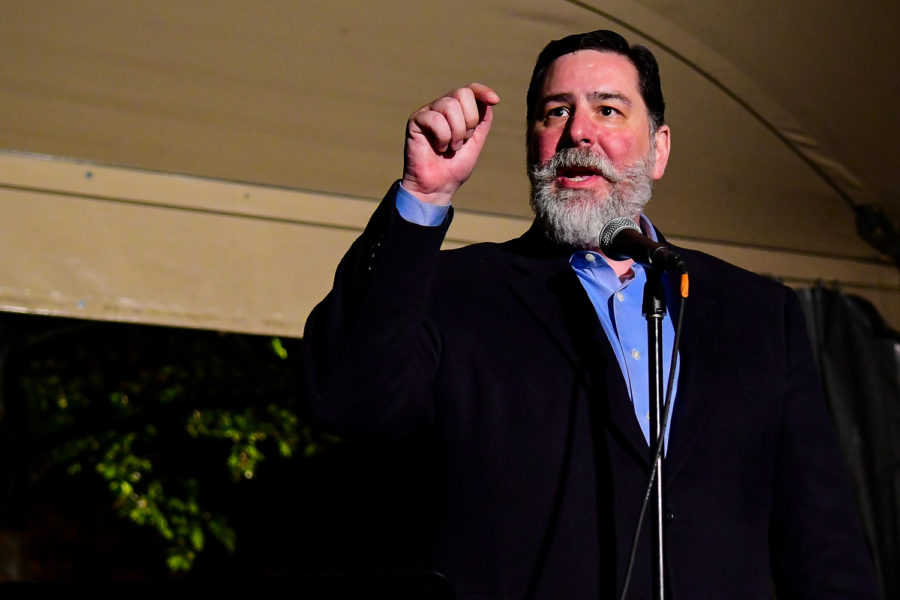Editorial: Peduto to release Amazon bid: too little, too late
Bader Abdulmajeed | Staff Photographer
Pittsburgh Mayor Bill Peduto recently announced the City’s plan to release its Amazon bid to the public, after months of refusing and claiming it contained trade secrets.
November 14, 2018
Amazon made a long-awaited announcement Tuesday. The retail giant will split its second headquarters between Long Island, New York, and Northern Virginia — snubbing Pittsburgh of the supposed privilege. At a Tuesday press conference Mayor Bill Peduto had a notable announcement, too — the City plans to release its Amazon bid to the public, perhaps as soon as Thursday.
“Once we get an opportunity to see what New York and D.C. have offered, so we have some kind of comparison, I would think that we could release it as soon as 48 hours,” Peduto said.
But releasing the bid after Amazon’s final decision betrays the very people the decision would have affected — the average Pittsburgher. Pittsburgh was a prime contender to become Amazon’s second headquarters — a business decision that could have ushered in 25,000 new jobs, potentially revolutionizing the economic landscape of the City whether it helped the average Pittsburgh resident or not.
Peduto claims he couldn’t reveal the details of the bid due to several nondisclosure agreements — but according to Jules Lobel, a Pitt law professor, the bid is a public record and should therefore be publicly available.
“It’s something that was developed by the City in conjunction with others, but it involves public matter,” Lobel said. “So it should be transparent and should be open under the public records law.”
The vast majority of Pittsburghers don’t know the details of Pittsburgh’s Amazon bid at all — including City Council, which would have had to approve any tax incentives Amazon requested.
There are very few compelling reasons why Amazon would choose a major metropolitan area for its headquarters over a medium-sized city like Pittsburgh. New York City and Washington, D.C., certainly have their perks — efficient public transit systems and flourishing tech sectors — but blue-collar cities like Pittsburgh have the core worker base that Amazon should value.
The average Pittsburgh employee who works in manufacturing and construction — which the majority of Amazon jobs fall under — makes only $13.40 an hour. Amazon recently announced that it would pay all its workers at least $15 an hour, but the employees at its second headquarters will be paid an average of more than $100,000 a year, mostly for cutting-edge tech jobs. Between Pitt and Carnegie Mellon, one of the best computer science schools in the world, Pittsburgh has thousands of qualified college graduates ready to snag those jobs.
And in the final locations, local universities are the most excited. Virginia Tech announced a plan to build a $1 billion graduate campus near the site of the future Amazon headquarters, and George Mason University plans to create a new institute focused on digital innovation.
But the decision is bittersweet — Amazon’s announcement has sent housing prices in Long Island and Northern Virginia through the roof. Had the same thing happened in Pittsburgh, thousands of working-class people could have been priced out of the City altogether.
Pittsburgh may have been snubbed of a chance to headquarter the largest company in the world, but the average Pittsburgher was deprived the right to know how that decision could have affected them personally.








